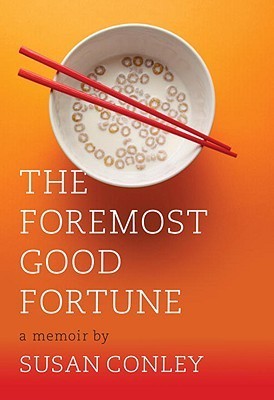
Battle Hymn of the Tiger Mother
Book Description
What if the secret to success lies in strict discipline and relentless ambition? In 'Battle Hymn of the Tiger Mother,' Amy Chua pulls back the curtain on her fiercely demanding parenting style rooted in Chinese traditions. As she battles cultural contrasts and challenges her daughters to achieve excellence, the stakes rise, testing their resolve and the very fabric of family bonds. With every piano lesson and math drill, the line between nurturing and harshness blurs, igniting fierce debates about love, ambition, and identity. Can a mother’s unyielding expectations lead to extraordinary triumphs—or irreparable rifts? Dive into the intense world of modern parenting and discover the true cost of achievement.
Quick Book Summary
In "Battle Hymn of the Tiger Mother," Amy Chua offers an unvarnished account of her experiences raising her two daughters according to strict, traditional Chinese parenting methods. Contrasting sharply with more laid-back Western approaches, the book delves into Chua's insistence on discipline, academic excellence, musical mastery, and the sacrifice required to nurture high achievement. Through candid stories, Chua reflects on both the triumphs and tensions within her family, examining the virtues and costs of relentless ambition. As her younger daughter pushes back against unyielding standards, Chua wrestles with questions of love, cultural identity, and the true measure of success. This memoir ignites conversations about the purpose of parenting and the delicate balance between encouragement and pressure.
Summary of Key Ideas
Table of Contents
Cultural Contrasts in Parenting Styles
Amy Chua’s memoir chronicles her journey as a self-described “Tiger Mother,” determined to raise her daughters, Sophia and Lulu, under the principles of traditional Chinese parenting. Believing that strict discipline and high expectations are the keys to unlocking children’s potential, Chua enforces unwavering academic routines, bans sleepovers, and insists on hours of music practice. Her methods, rooted in her own upbringing, clash with American parenting norms, laying the groundwork for a series of challenges and revelations.
The Costs and Rewards of High Expectations
The deeply-engrained cultural divide between Chinese and Western approaches to parenting is a central theme. Chua articulates her conviction that Western parents too often prioritize self-esteem and enjoyment at the expense of achievement and resilience. In contrast, Chinese traditions stress hard work, respect, and the idea that children owe their parents success. Through vivid anecdotes—honing math drills, mastering piano pieces—Chua demonstrates how these values drive her strategy, even as they provoke criticism and misunderstanding from those around her.
Defining Success, Discipline, and Motivation
Chua’s relentless expectations yield remarkable results in her daughters’ accomplishments, but not without emotional tolls. The relationship with her younger daughter, Lulu, grows increasingly strained as Lulu resists strictures and asserts her independence. This rebellion forces Chua to confront the fine line between motivation and harshness. The family’s struggles illuminate the psychological and relational costs of such an intense regimen, inviting reflection on whether discipline and achievement can justify tension or alienation.
Family Dynamics and Rebellion
As the memoir unfolds, Chua begins to question her own inflexibility. Through moments of conflict and reconciliation, she recognizes the individuality of her daughters and the limitations of one-size-fits-all parenting. She acknowledges that love and mutual understanding are as vital to growth as accomplishment. These realizations prompt her to soften her approach, blending her Tiger Mother discipline with greater empathy and emotional support.
Reflecting on Love, Identity, and Balance
Ultimately, "Battle Hymn of the Tiger Mother" does not prescribe a single best path to parenting. Instead, it challenges readers to contemplate their definitions of success, strength, and happiness. Chua’s honest account highlights both the achievements and struggles produced by high expectations, valuing resilience while reminding us of the importance of love and flexibility. As she reflects on her evolving relationship with her daughters, Chua extends an invitation to reconsider what it truly means to nurture and support the next generation.
Download This Summary
Get a free PDF of this summary instantly — no email required.





